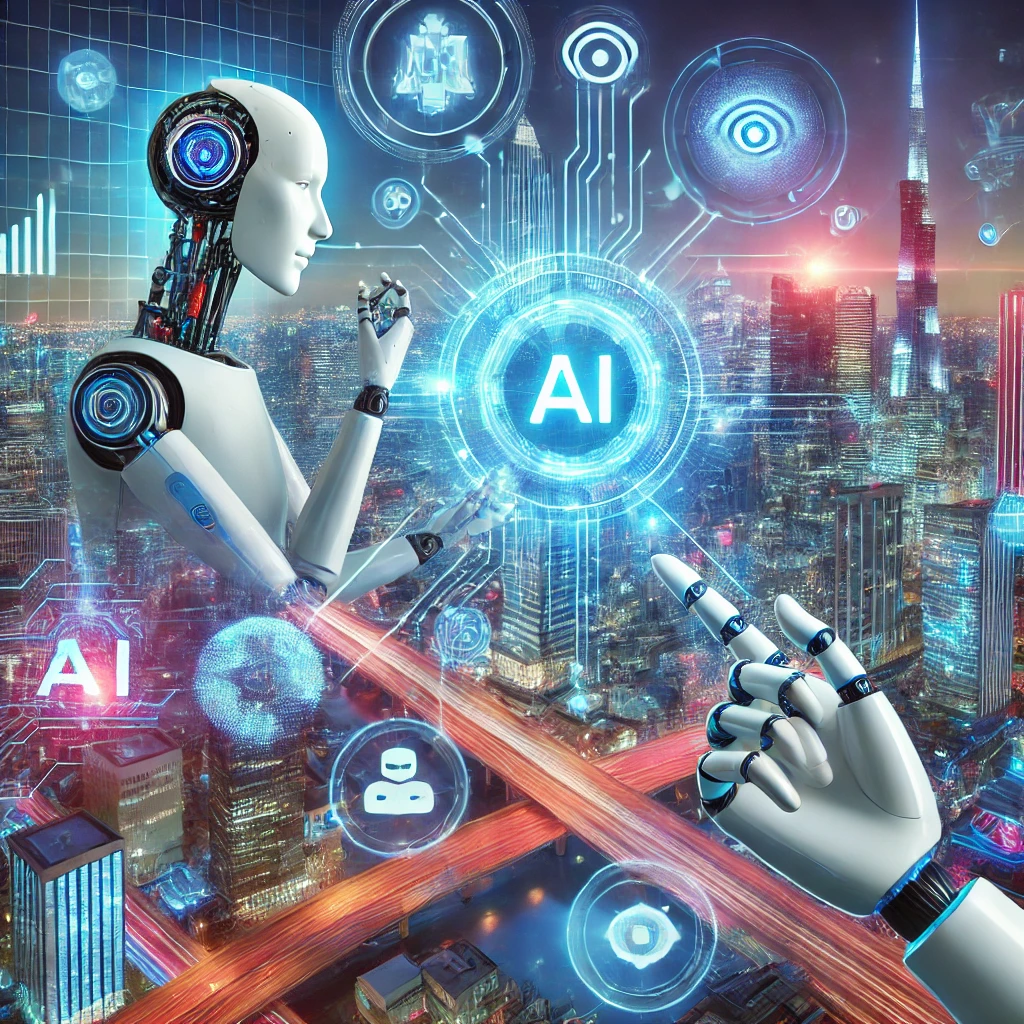Blogs / The AI Revolution is Coming: Are You Ready for the Future?
The AI Revolution is Coming: Are You Ready for the Future?
Admin / October 10, 2024

As we advance deeper into the 21st century, the term Future Artificial Intelligence (AI) is becoming increasingly prominent in discussions about technology, innovation, and societal change. But what does it mean for AI to be “future”? This blog will delve into the concepts, advancements, and implications of future AI, providing you with insights into its potential impact on various sectors and everyday life.
What is Future Artificial Intelligence?
Future Artificial Intelligence refers to the next generation of AI technologies that are expected to evolve beyond current capabilities. It encompasses advancements in machine learning, natural language processing, computer vision, and robotics that will enable machines to understand, learn, and interact with the world in ways that were once thought to be purely science fiction. The future of AI is not just about automation; it’s about enhancing human capabilities, fostering creativity, and solving complex global challenges.
Key Features of Future Artificial Intelligence
- Enhanced Machine Learning Algorithms
Future AI will leverage more sophisticated machine learning algorithms, enabling systems to learn from data in real-time and adapt to new information without requiring human intervention. This will lead to more intelligent decision-making and predictive capabilities. - Human-Like Interaction
One of the most exciting developments in future AI is its potential to facilitate natural and intuitive human-machine interaction. With advancements in natural language processing and emotion recognition, future AI will be able to engage in conversations, understand context, and even respond to emotional cues. - Autonomous Systems
Future AI will see the rise of fully autonomous systems capable of performing complex tasks across various sectors, from healthcare to transportation. These systems will operate with minimal human oversight, leading to greater efficiency and productivity. - Ethical AI
As AI technologies evolve, so does the need for ethical considerations. Future AI will focus on transparency, fairness, and accountability, ensuring that AI systems are developed and used responsibly. This includes addressing bias in algorithms and prioritizing user privacy. - Integration with IoT
The Internet of Things (IoT) will play a crucial role in the future of AI. By integrating AI with IoT devices, we can create smart environments that learn from user behavior, optimize energy consumption, and enhance security, leading to a more interconnected and efficient world. - Personalized Experiences
Future AI will enable hyper-personalization in various fields, such as marketing, healthcare, and education. By analyzing user data and preferences, AI systems can deliver tailored recommendations, services, and learning experiences that cater to individual needs. - Collaborative AI
Future AI will focus on collaboration between humans and machines. By enhancing human capabilities rather than replacing them, AI will become a valuable partner in creative processes, problem-solving, and decision-making.
How Does Future Artificial Intelligence Work?
At its core, Future Artificial Intelligence will rely on advanced algorithms and vast datasets to learn and make decisions. Here’s how it will work:
- Data Collection: Future AI systems will gather data from multiple sources, including IoT devices, social media, and user interactions, creating a comprehensive understanding of the environment.
- Real-Time Learning: With improved machine learning techniques, future AI will analyze data in real time, identifying patterns and trends that inform its decisions.
- Adaptation: Future AI systems will adapt to changes in data and context, refining their algorithms and improving their performance over time without requiring manual updates.
- Human Collaboration: Future AI will work alongside humans, enhancing their capabilities and providing valuable insights that lead to better decision-making.
Why Should We Care About Future Artificial Intelligence?
- Transforming Industries: Future AI is set to revolutionize industries such as healthcare, finance, education, and transportation, leading to more efficient processes, improved outcomes, and innovative solutions to complex challenges.
- Enhancing Quality of Life: By automating mundane tasks and improving services, future AI can enhance our daily lives, allowing us to focus on more meaningful activities.
- Addressing Global Challenges: Future AI has the potential to tackle pressing global issues, such as climate change, healthcare accessibility, and food security, by providing data-driven insights and solutions.
- Economic Growth: The integration of future AI technologies can drive economic growth, create new job opportunities, and boost productivity across various sectors.
Popular Use Cases for Future Artificial Intelligence
- Healthcare Innovations
Future AI will enable personalized medicine, predictive analytics for disease prevention, and robotic surgery, revolutionizing patient care and treatment. - Smart Transportation
Autonomous vehicles powered by future AI will enhance road safety, reduce traffic congestion, and provide efficient transportation solutions for urban areas. - Enhanced Customer Service
Future AI-powered chatbots and virtual assistants will provide instant support and personalized recommendations, improving customer experiences across industries. - Educational Advancements
Future AI will facilitate personalized learning experiences, adaptive learning platforms, and intelligent tutoring systems that cater to individual learning styles and paces.
The Future of Future Artificial Intelligence
As we move forward, Future Artificial Intelligence will continue to evolve, presenting new opportunities and challenges. The ongoing research and development in AI will lead to groundbreaking technologies that reshape how we interact with the digital world. However, it is crucial to approach this future with a focus on ethical considerations and responsible AI development to ensure that technology serves humanity positively.
Conclusion
Future Artificial Intelligence is set to redefine our relationship with technology, opening doors to innovation, efficiency, and enhanced quality of life. Understanding its implications and potential applications will help us navigate this exciting landscape. Whether you’re a business leader, a creative professional, or simply an enthusiast of technology, embracing the possibilities of future AI will undoubtedly play a significant role in shaping our world.